SUMMARY
This is AI generated summarization, which may have errors. For context, always refer to the full article.
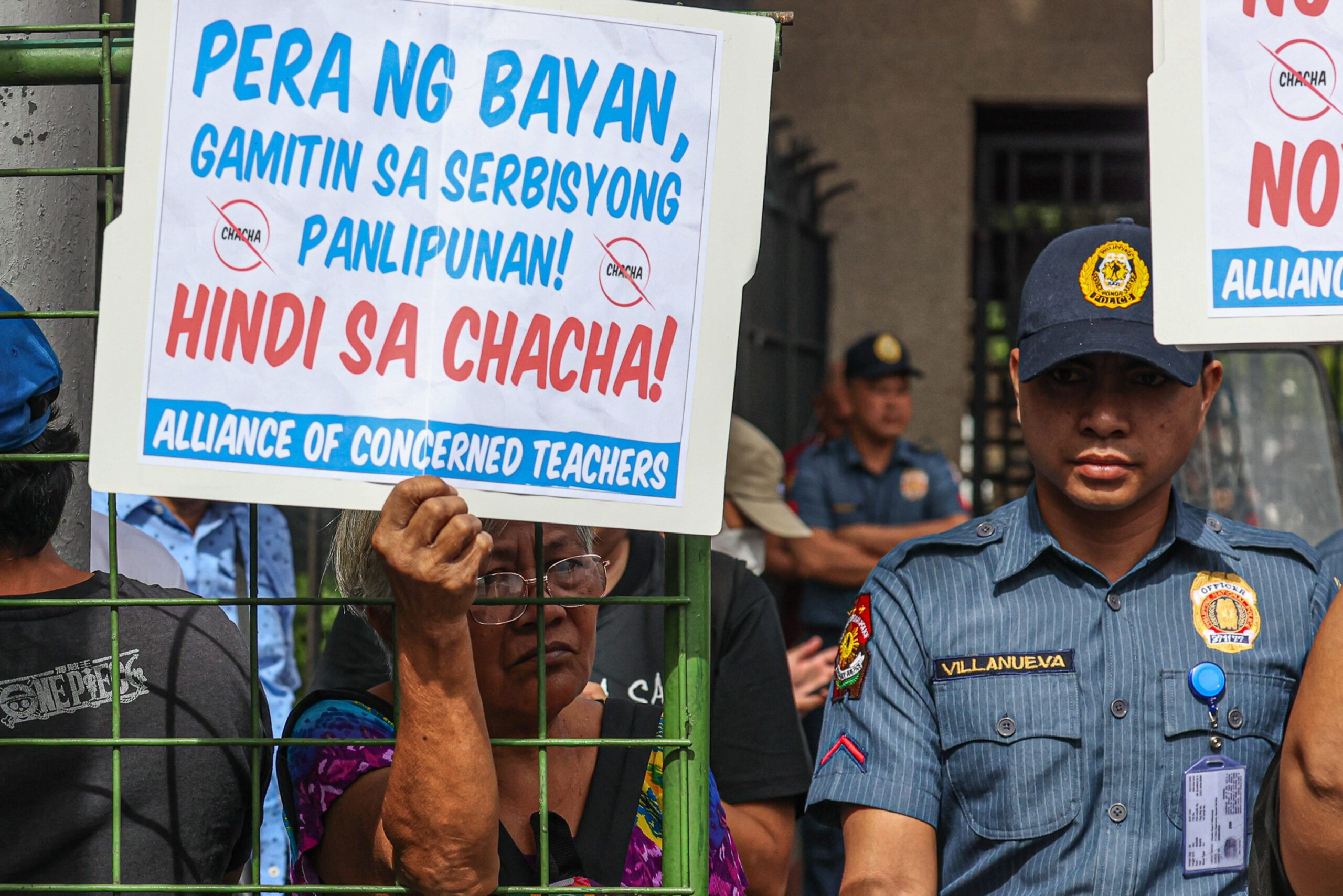
MANILA, Philippines – The coordinated push to gather signatures nationwide in support of charter change may have signaled confidence from its advocates, but the Philippines’ election body is not as optimistic about the chances of a referendum pushing through this year.
The Commission on Elections (Comelec) will be the one tasked to oversee a plebiscite should the agency enable and recognize as valid the people’s initiative to amend the 1987 Constitution.
A plebiscite will ultimately ratify the amendment being proposed – that the House and the Senate vote jointly, not separately, in the event that a motion to form a constituent assembly is called.
Mounting a plebiscite is easier said than done. It requires a lot of logistical considerations, which can burden the Comelec at a time when it begins prioritizing the 2025 midterm elections.
Time constraints
A January 24 report from the Comelec indicated that their offices in 75% of legislative districts nationwide have received signature forms for the people’s initiative.
That, however, is just the first step.
After the signature drive is finished, the brains behind the people’s initiative campaign will have to submit a formal petition to the Comelec, which in turn, will evaluate whether it is sufficient in form and substance.
“We will only verify the signatures after the sufficiency in form and substance requirement is met,” Comelec spokesman Rex Laudiangco said in an interview with Teleradyo Serbisyo on January 19.
As the process could take months, the possibility of a mid-year plebiscite further shrinks.
“If they were able to file [the signatures] by the first week of January, maybe we could have conducted the plebiscite by August,” Comelec Chairman George Garcia explained in the Kapihan sa Manila Bay news forum on January 24.
Limited manpower
The poll body laid out the numerous challenges that would emerge once signature verification is underway.
“We will check if the signature is from an actual person, if they are a registered voter, if their record is not deactivated, if they are not delisted, and if their signature is the same as the one in our records,” Laudiangco said. “For the last step, we will certify how many verified signatures remain.”
The signature verification process itself is already tedious, but it is aggravated further by the fact that local Comelec offices across the country have a lean staff.
The poll body even floated the possibility of putting voter registration on pause to validate the signatures.
“We only have one election officer per municipality and city, and they cannot do voter registration and signature verification at the same time,” Laudiangco added.
Budget issues
Congress gave Comelec a budget of P14 billion for the conduct of plebiscites in 2024, a 600% increase from the P2 billion it was given the previous year. That’s even though there are only two plebiscites scheduled so far this year, compared to at least six that were held in 2023.
The surge in funding alarmed opposition lawmakers who believe that the extra funds were inserted to mount the charter change-related plebiscite.
For the record, the Comelec initially requested an agency-wide budget of P43 billion for 2024, but the executive branch asked Congress for only P27 billion.
The poll body told lawmakers that it needed the slashed funds for midterm election preparations, but when Congress restored most of the budget that the Comelec originally asked for, it inserted the funds into the line item on plebiscites, instead of the line item on election preparatory activities.
Nonetheless, the Comelec believes the budget given to them is not enough to squeeze into their calendar a plebiscite on the people’s initiative this year, saying it needs an additional P12 billion to P13 billion.
“If a plebiscite would push through maybe in August or September, we will be short of funds. Because the extra budget given to us is for the preparations for the national and local elections, special elections, and recall. The Comelec will have a financial crisis just in case a national plebiscite materializes this year,” Comelec executive director Teopisto Elnas Jr. told House lawmakers during a suffrage committee hearing on January 23.
Conflict with 2025 elections
By October, the Comelec will be focused on accepting certificates of candidacy from hundreds of thousands of elective aspirants nationwide.
This could likely put the charter change agenda on the back burner, given that the events that will follow are just as laborious for the poll body.
“We will start [focusing] on the technical side of our preparations – customization, loading of machines, mock elections, field tests,” Elnas said.
Chairman Garcia also thumbed down the possibility of holding the polls simultaneously with Election Day on May 12, 2025, citing a 1981 Supreme Court ruling.
“If the ballot is about changing the Constitution, that should be the only agenda so that the public can absorb better the implications of their vote,” he said on January 19. “In my opinion, the public will be confused.”
On January 24, he also raised other impediments that would complicate a charter change-related plebiscite after the May vote in 2025: resumption of voter registration for the barangay and Sangguniang Kabataan elections, and the actual Election Day for the village-based polls in October.
Ultimately, Garcia mentioned a date that appears to be the most convenient time for the Comelec to hold a plebiscite: 2026.
But can the proponents of charter change wait that much longer? – Rappler.com
(All quotes in Filipino were translated into English, and some were shortened for brevity.)
Add a comment
How does this make you feel?
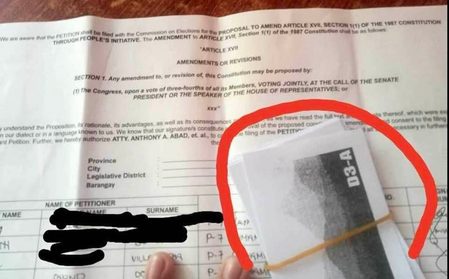
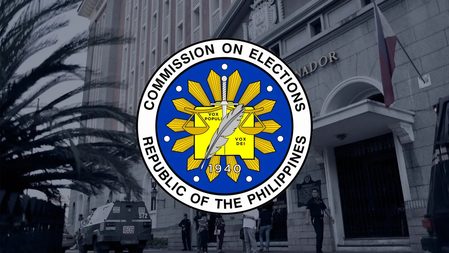
![[In This Economy] A counter-rejoinder in the economic charter change debate](https://www.rappler.com/tachyon/2024/04/TL-counter-rejoinder-apr-20-2024.jpg?resize=257%2C257&crop=267px%2C0px%2C720px%2C720px)
![[In This Economy] Here’s a new paper by UP economists on economic charter change](https://www.rappler.com/tachyon/2024/04/TL-foreign-direct-investments-apr-12-2024.jpg?resize=257%2C257&crop=299px%2C0px%2C720px%2C720px)
![[EDITORIAL] Kapag bumabagsak ang ratings, balikan ang basics](https://www.rappler.com/tachyon/2024/04/animated-bongbong-marcos-sara-duterte-popularity-numbers-2024-carousel.jpg?resize=257%2C257&crop_strategy=attention)
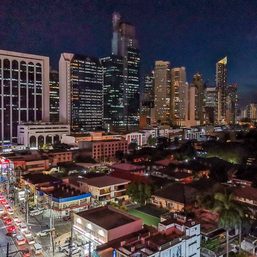
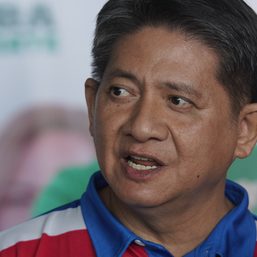
There are no comments yet. Add your comment to start the conversation.